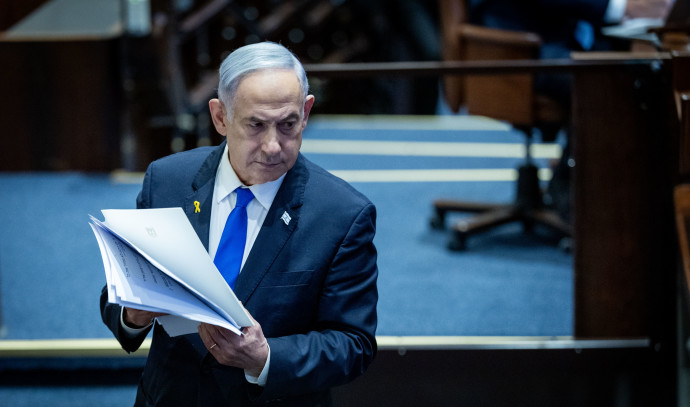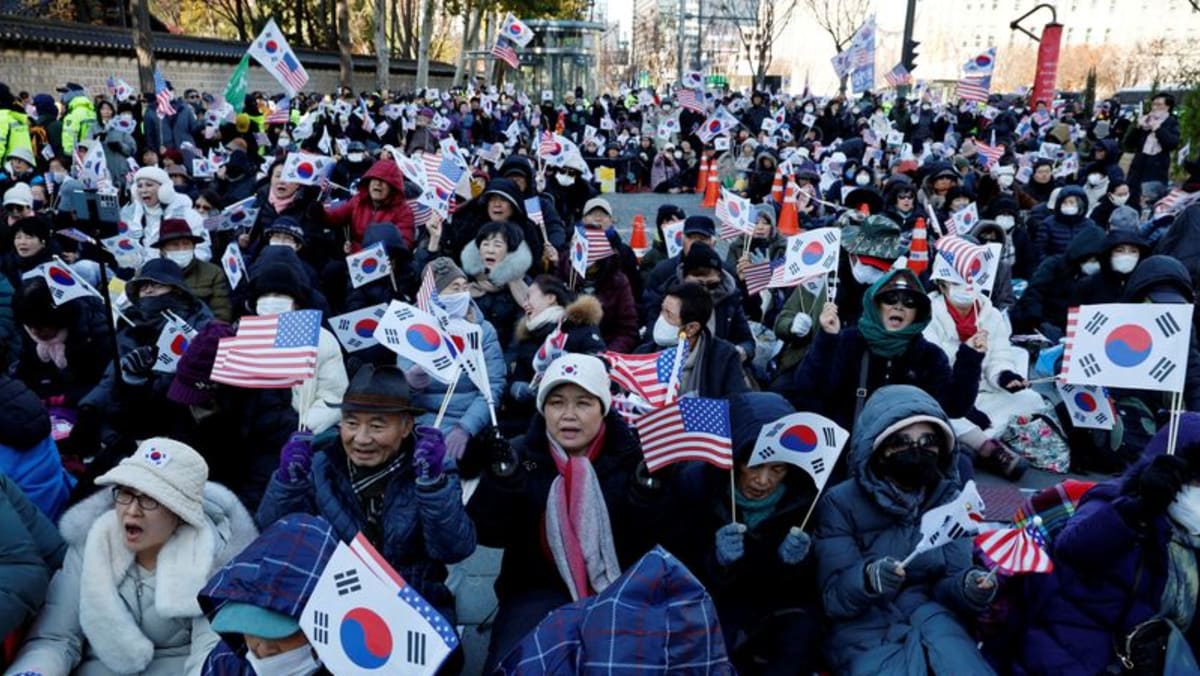This week, Israeli Prime Minister Benjamin Netanyahu had to reign in a cabinet minister who threatened to change the status quo in a holy site in Jerusalem, threaten a “powerful” response against Hezbollah in Lebanon, and continue to manage the war on the Hamas terrorist organization in Gaza – all while facing the realistic possibility of an international arrest warrant being issued against him and other Israeli officials on allegations of war crimes and deliberating a possible cease-fire deal that he would see the release of the remaining more than 120 Israeli hostages being held in the Gaza Strip.
Meanwhile, a deadline given to him by his moderate coalition partners, Benny Gantz and Gadi Eisenkot, is coming up and, if materialized, could signal the beginning of the end of his government, even though he continues to rely on the far-right elements of his coalition to ensure his political survival – a reliance that has also put him and Israel at odds with the United States and much of the international community. Netanyahu also faces charges of corruption in Jerusalem’s district court, and his defense is set to begin next month with his testimony. And his coalition is confronted by a major ongoing debate on a contentious exemption for ultra-Orthodox Jews from otherwise compulsory military service.
Netanyahu’s conundrum, as Israel’s longest-serving prime minister, is very much Israel’s. Facing eight months of war on multiple fronts, the Israeli leader is facing declining popularity, which is likely dictating at least part of his decision-making.
“He knows it’s over for him,” Lianne Pollak-David, a strategic advisor and Dvora Forum member who has previously worked in the Israeli Prime Minister’s Office and the National Security Council, told The Media Line. “The question is how much time he is trying to buy to pull yet another hat trick, or will he lead Israel to a position in which it will come out stronger from this devastating attack.”
Israelis rallied behind the war effort after Hamas’ surprise attack on October 7th, setting aside months of internal turmoil stemming from Netanyahu’s contentious attempt to reform the judicial system in the country. But Netanyahu’s approval ratings plummeted, as many saw him as responsible for the war, putting his political future in limbo.
Netanyahu laid out the goals of the war on Hamas to the Israeli public and the world. Israel was embarking on a massive military effort to destroy Hamas’ military capabilities, remove it from power, and release all the hostages. Eight months later, Hamas is still the dominant force in Gaza. While half of the hostages were released in the first weeks of the war, there is growing frustration amongst the Israeli public that the remainder have not been released, despite several deals that were on the table. Opinions on a hostage release deal and the cessation of the war effort amongst the Israeli public have fluctuated during the war.
Ceasefire dilemma
“The public understands that the military pressure on Hamas has exhausted itself and that Netanyahu’s ‘total victory’ slogan is hollow,” Pollak-David told The Media Line.
Israel is now waiting for Hamas to respond to its latest offer for a cease-fire and a hostage release deal. The proposal is being aggressively promoted by US President Joe Biden, who outed the deal before Netanyahu presented it to his coalition partners and the Israeli public. It was an apparent attempt by the White House to apply pressure on Netanyahu after months of discord between Washington and Jerusalem. The proposal includes the gradual release of Israeli hostages and a lengthy ceasefire between Hamas and Israel. The far-right elements in his government, mainly National Security Minister Itamar Ben-Gvir and Finance Minister Bezalel Smotrich, have threatened to resign from the government if the deal is passed.
“We need to win the war against Hamas and Hezbollah, only with war!” said a heated Ben Gvir in Jerusalem’s Old City as he participated in a controversial rally that passed through a Palestinian-dominated area in East Jerusalem.
Countering their opposition, the ultra-Orthodox parties in the government announced they would vote in favor of a deal to release the hostages. Such a deal would also receive the support of parts of the opposition, giving Netanyahu a safety net for the deal but not an insurance policy for the survival of his government. It is unclear how much support Netanyahu would have from within his own Likud party for a deal with Hamas.
“Netanyahu has the majority in the cabinet, in the government, and the parliament to secure a deal with Hamas,” said Dr. Ilana Shpaizman of the Department of Political Studies at Bar-Ilan University. “But if Ben-Gvir and Smotrich follow through with their threats, Netanyahu will be left without a government the day after the deal.”
While Netanyahu has a solid majority without Gantz and Eisenkot, their withdrawal and lack of influence in the war cabinet could catalyze political change in the country.
“This will set a stopwatch on the coalition, making it survive on borrowed time,” said Pollak-David. “While it will not topple the government, it is an event that could lead to such an outcome by creating a lot of public pressure against Netanyahu.”
Gantz and Eisenkot are viewed as the moderates in an otherwise extreme coalition, considered Israel’s most right-wing ever to govern. For opponents of the far-right elements of the current government, their presence in the war cabinet guaranteed a more moderate decision-making process.
After an initial poll dip, Netanyahu has begun recuperating in recent weeks. However, more importantly, the overall numbers for the current ruling bloc show he will not be able to assemble the next government should elections be held now. The Likud party, significantly lagging behind Gantz’s Blue and White Party, is slowly closing the gap. This improvement could encourage Netanyahu to announce an early election, an option he has categorically ruled out under wartime, perhaps as long as his polling numbers are unfavorable.
When asked if Netanyahu could elongate the war to remain in power, Biden didn’t rule it out. “There is every reason for people to draw that conclusion,” he told TIME magazine earlier this week.
“Early elections are inevitable,” Shpaizman told The Media Line. “Netanyahu might prefer going to the polls after a hostage release deal when public sentiment will be more positive.”
Internationally, Netanyahu and Israel are increasingly isolated. Netanyahu has not only constantly been butting heads with the White House, but Israel is also facing charges of alleged genocide at the International Court of Justice (ICJ), with additional countries joining the trial initiated by a South African request.
A request for an arrest warrant to be issued for Netanyahu at the International Criminal Court (ICC) was reportedly a cause of great concern to the Israeli leader, who would be severely limited if such a warrant were issued. In addition, more countries are recognizing a Palestinian state, much to Israel’s dismay. Armament imports from several countries have been canceled in protest of Israel’s war on Gaza, with the US saying it has delayed shipment of certain bombs believed to be causing increased civilian casualties in the Gaza Strip.
Earlier this week, Netanyahu boasted about his fourth invitation to speak to both houses of Congress.
“This was Biden’s way of hugging and restricting Netanyahu at the same time,” said Pollak-David. “The stage at Congress is meant to soften him in order to move forward with the deal.”
The stakes are high, as Israel and Netanyahu have reached a crossroads that will determine the state’s and the leader’s future.







